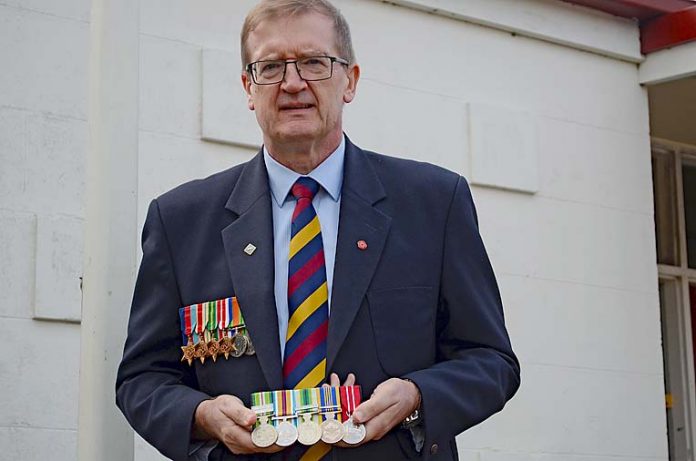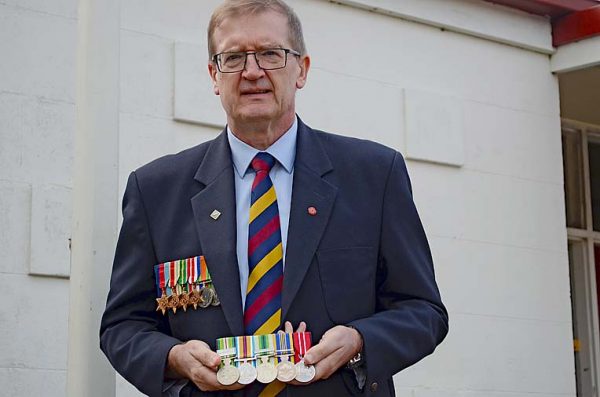

FAMILY history and a search for more life experience was veteran Jon Hodge’s motivation behind joining the Australian Defence Force.
“My grandfather served as did my father so there is a lot of family history there,” Mr Hodge said.
“When I finished university I was not sure what I wanted to do and this was a way to get a bit more life experience.”
After first joining the defence force in 1981, Mr Hodge started service in 1991 where he travelled to Iraq as a part of the first Gulf War.
In Iraq, Mr Hodge spent his service treating Kurdish refugees and upon his return, decided to see what else was on offer and joined the Army Reserves.
“Iraq in 1991 was the most challenging period because it was a group of people who were Kurdish refugees and when you look back on some of the people you work with at that stage, you think what kind of lives they would have lead up until the war – it is mind boggling,” he said.
In 2001, Mr Hodge travelled to East Timor where he served as a public health officer, giving advice on preventing the spread of disease.
“That was a very interesting experience,” Mr Hodge said.
“In 2013 I also travelled to the Middle East as a senior medical officer for several months and came back from that in 2014.
“That is where I thought I better find something else to do because my joints were not as they used to be.”
During his first term of service as senior medical officer, Mr Hodge took charge of humanitarian response with “very hands on” work as he treated refugees with infections.
“The third time I was senior medical adviser again and was in charge of the entire area,” Mr Hodge said.
“There was a lot of high level planning and coordinating casualties coming out of the country but it was not as much of a hands on job as some of my previous work.”
Mr Hodge noted the difference in service during his extensive time in the army.
“It is so different now because in 1991 if you wanted to communicate with your family then you would write letters which would eventually get through,” he said.
“Whereas in 2014 you are all internet based and can send emails, make phone calls and all the rest of it so communication has changed dramatically.”
Mr Hodge also noted the difference in sending service men and women overseas, explaining it was unusual to send them overseas in 1991.
“We were posted to Vietnam,” he said.
“Whereas in 2014 East Timor kicked off a period of around 20 years where we were continuously sending people overseas.”
Better preparation was also an observation Mr Hodge has made over the years.
“We better prepare people psychologically now than we did back in the day and in regards to post traumatic stress disorder there are a lot of things that we do now that we would not have even considered back in 1991,” he said.
“I have had a great time in the military and I do miss it, it is great because you are helping people and serving your country.”







